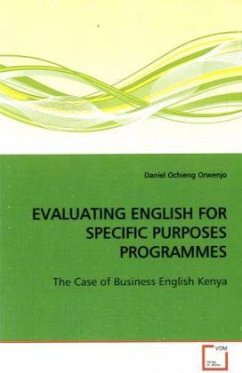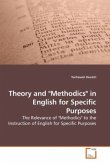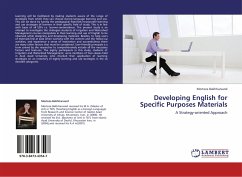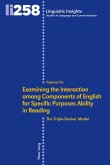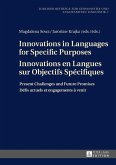Despite having been in existence for almost half a
century, ESP still continues to be characterised by
serious methodological and pedagogical problems in
its theory and practice. Evaluation is one of the
most persistent problems that ESP has been faced
with. ESP practitioners have concentrated more on ESP
materials evaluation without providing clear
guidelines on how the course should be evaluated. The
other issue has been the nature of ESP itself and the
inherent need to develop different evaluative
strategies that would suit a language course that
focuses both on the acquisition of linguistic
knowledge and occupational skills, such as ESP. This
book attempts to address some of these problems by
evaluating the Business English programme, a
sub-genre of ESP, in Kenya. The study is an
evaluative survey, which investigates the current
situation with regard to the fluctuating performance
by students in Business English examinations syllabus
are some of the recommendations that are put forward
in a bid to address this problem.
century, ESP still continues to be characterised by
serious methodological and pedagogical problems in
its theory and practice. Evaluation is one of the
most persistent problems that ESP has been faced
with. ESP practitioners have concentrated more on ESP
materials evaluation without providing clear
guidelines on how the course should be evaluated. The
other issue has been the nature of ESP itself and the
inherent need to develop different evaluative
strategies that would suit a language course that
focuses both on the acquisition of linguistic
knowledge and occupational skills, such as ESP. This
book attempts to address some of these problems by
evaluating the Business English programme, a
sub-genre of ESP, in Kenya. The study is an
evaluative survey, which investigates the current
situation with regard to the fluctuating performance
by students in Business English examinations syllabus
are some of the recommendations that are put forward
in a bid to address this problem.

